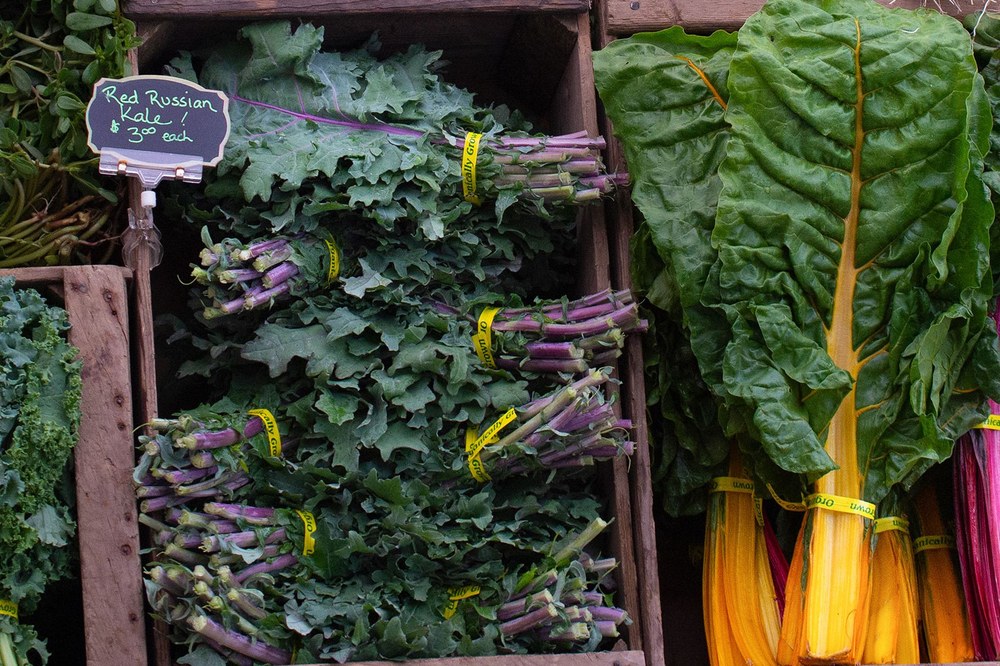Addressing interconnected problems surrounding food choice, food waste, human health, and the environmental impacts of these systems.
Issue
Food choice is at the center of some of the most important health and environmental problems facing society today. The Intergovernmental Panel on Climate Change describes plant-based dietary changes as a major opportunity for reducing carbon emissions, and household-level food waste is the largest component of U.S. landfills and a major source of methane emissions. At the same time, obesity and related health conditions are among the leading causes of preventable, premature death.
With the help of micro-level food-purchase and health survey data, researchers at Penn State are studying how household-level food choices relate to dietary quality, personal health, and waste. The full scope of these questions can only be answered with a multi-disciplinary approach, pulling in, for example, data scientists skilled in machine learning and data mining, experimental research settings such as a food sensory lab, or a data collection effort featuring both environmental and data scientists.
This initiative seeks to uncover an actionable understanding of the following dimensions:
- Policy lessons from over- and under-achievers: Income, location, and other household characteristics have proven to be good predictors of both dietary quality and food waste. Researchers at Penn State are investigating what policy lessons can be learned from individuals who have achieved, for example, unpredictably high levels of diet quality, unpredictably low levels of food waste, or those who predictably underachieve on these factors.
- Behavioral investigations on “food addiction" and waste: If individuals with obesity or other health conditions are behaving as if they are addicted to certain foods (as some research shows), what nudges or policies can be developed to improve food choices? Similarly, how can consumers be nudged to waste less food?
- New data collection and broader analyses: While the existing food purchasing data provide a rich source for behavioral answers, several important pieces of information are missing, including data from online retailers, meal kit providers, and other Web-based food sellers, as well as food-specific estimates for carbon footprints or other environment impacts.
Convener
Edward (Ted) Jaenicke, Ph.D.
Professor of Agricultural Economics
Associated Members
Associates
- Joshua Lambert, Professor, Food Science*
- Matthew Royer, Assistant Research Professor, Director Agriculture & Environment Center*
- Josephine Wee, Assistant Professor, Food Science*
Affiliates
- Meg Breuning, Professor, Nutritional Science
- Eric Burkhart, Associate Teaching Professor, Ecosystem Science and Management*
- Amber Cesare, STEM Education Outreach Specialist, College of Education*
- Francesco Di Gioia, Assistant Professor, Vegetable Crop Science*
- Ryan Elias, Professor of Food Science
- Linlin Fan, Assistant Professor, Agricultural Economics Sociology & Education
- Jill Felker, Lecturer, Biochemistry & Molecular Biology
- Erika Ganda, Assistant Professor of Food Animal Microbiomes*
- Sara Hermann, Assistant Professor, Arthropod Ecology & Trophic Interactions*
- Helene Hopfer, Rasmussen Career Development Professor, Food Science
- Kathy Kelley, Professor of Horticultural Marketing & Business Management
- Yizao Liu, Associate Professor, Agricultural Economics, Sociology & Education
- Andrew Read, Director, Huck Institutes of the Life Sciences*
- Claudia Schmidt, Assistant Professor, Agricultural Economics*
- Amit Sharma, Professor & Director, Food Decisions Research Laboratory
- Rui Shi, Assistant Professor, Chemical Engineering*
- Meera Surendran Nair, Assistant Clinical Professor Resident, Veterinary Microbiology*
- Adrian Timms, Assistant Teaching Professor, Agribusiness Management
- Martina Vecchi, Assistant Professor, Agricultural Economics


